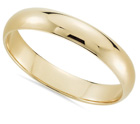 Happy couples in the Netherlands have plenty of unique and bewildered wedding traditions. To name just one, Dutch people usually serve herring as a wedding appetizer or snack. They even love to teach the outlanders how to eat this herring properly. And this truly can be fun and a great way to bring strangers (especially international wedding guests) together. It’s always nice to feel involved and welcomed at a wedding, so we all need curious wedding customs for this particular reason.
Happy couples in the Netherlands have plenty of unique and bewildered wedding traditions. To name just one, Dutch people usually serve herring as a wedding appetizer or snack. They even love to teach the outlanders how to eat this herring properly. And this truly can be fun and a great way to bring strangers (especially international wedding guests) together. It’s always nice to feel involved and welcomed at a wedding, so we all need curious wedding customs for this particular reason.
Dutch wishing tree – both romantic and useful
The Dutch wishing tree is a popular wedding tradition that offers a unique and versatile alternative to the traditional guestbook. Guests write their wishes on leaves or ribbons that are then attached to a collection of branches, creating a beautiful visual display.
What makes this tradition particularly special is its adaptability. Whether you're planning a rustic, romantic wedding or a more modern, fashionable affair, the wish tree can be tailored to suit any theme. For a rustic look, you can use natural, twisting branches adorned with twinkling lights. Alternatively, a modern wedding could feature a tree made of metal and crystal, adding a touch of glamour to the occasion.
After the wedding, the happy couple can cherish the wishes and display the leaves or even the wish tree itself as a lasting reminder of their special day.
Herring as wedding appetizer
For many cultures, the food served at a wedding reception is one of the most important aspects of the event. It's often a topic of conversation among guests long after the celebration is over. Whether you opt for a seated dinner or a buffet, featuring Dutch cuisine and its traditions is an excellent way to introduce international guests to the culture.
One traditional Dutch dish that can be served as a snack during the reception is herring. Not only does it showcase a staple of Dutch cuisine, but it can also serve as a conversation starter. Dutch guests can teach their international counterparts how to eat herring properly – either with or without raw onions – by holding the fish by the tail above their mouths. Encouraging guests to bond over each culture's traditional foods is a fantastic way to make the reception feel more inclusive and celebratory.
Serving traditional Dutch beverages
Laughter, conversation, and sharing drinks are all wonderful ways to bring people together, especially at a wedding where a lot of them meat for the first time. When deciding on which beverages to serve at the reception, couples love to include a Dutch wine on the menu. For a personal touch, they can choose a wine from the specific region in the Netherlands where the Dutch half of the couple hails from.
For an authentic Dutch wedding vibe, jenever is served. This juniper-flavored, gin-like liquor is a staple of traditional Dutch celebrations. Wedding guests will always appreciate the opportunity to partake in this unique and cultural drink.
Stukjes – Dutch wedding performance
Usually at weddings, it's common for guests to give speeches in honor of the bride and groom. However, the wedding guests in the Netherlands put on a real performance for the newlyweds. In Dutch, these performances are called “stukjes” and are typically organized by close family and friends rather than the couple themselves.
One popular performance idea is the “ABC-tje”, where a word is chosen for each letter of the alphabet to describe the newlyweds. However, keeping the audience's attention can be challenging with this format. Guests can get creative and showcase their personalities and talents by performing skits with props, playing pre-recorded films, or even singing an original song. Wearing Dutch wedding attire can add a touch of authenticity to the performance and make the occasion even more special.
“White bread weeks” – Dutch analogue of honeymoon
After the wedding, Dutch bride and groom enjoy some time alone as newlyweds. In Dutch tradition, this period is known as “wittebroodsweken”, or “white bread weeks”, which refers to a time when white bread was considered a luxury. This period typically lasts for 6 weeks after the marriage ceremony, during which the couple is not to be disturbed. It's the perfect opportunity to rest and recharge after the excitement of a big wedding.

